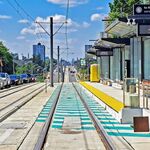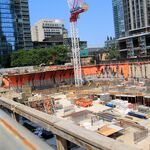PMT
Senior Member
Not sure if it belongs in this thread, but all this talk reminds me of a conversation I had with my sister. We were discussing if any of the neighbourhoods along the Finch West LRT (for example, Jane and Finch, Emery, Jamestown) are likely to be gentrified in the future. She's worried that they will be, but I'm hoping the city will push to revitalize the areas instead - similar to Regent Park, Lawrence Heights, etc.




